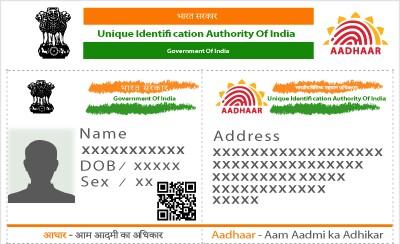The State’s reply in the Aadhaar-PAN linking case was heard today (our coverage of arguments from previous hearings can be accessed at these links: Day 1, Day 2, Day 3). Attorney General, Mr. Mukul Rohatgi, arguing for the State laid down the following points:
- The only issue to be considered in this case is the validity of Section 139AA. The petitioners’ lawyers have argued the issue of privacy which is already pending to be heard by a Constitution Bench and therefore not relevant in the present case.
- A statutory provision can be questioned on the basis of two grounds only: 1) Legislative competence 2) If it is in violation of the Constitution. Legislative competence is established by Articles 246, 248 read with entries 82 and 97. On the second ground, the Attorney General pointed out that income tax by its very nature is coercive, so there is no question of it being in violation of Article 19. Further, he said that Article 21 cannot be invoked merely on the question of taxation. The Parliament is the sole authority to decide the rules of taxation.
- PAN card was introduced in 1975 to give unique identities to tax payers. It was necessary during that time for orderly collection of taxes. In today’s world, we have to keep pace with technology and hence move towards a more fool-proof method of identification to prevent de-duplication of identity, which is only possible through collection of biometrics. He further highlighted that we live in a world where we are frisked for security reasons, and our fingerprints are taken for issuance of passport. Therefore, the right of bodily integrity is not absolute. Quoting Rousseau and the social contract theory, he said that the state is like a corporation and the citizens are its members. To avail benefits from the state, we need to comply with the rules and regulations made by it.
- Interim orders passed by the Supreme Court cannot act as legislative estoppel because the orders were passed when Aadhaar was an executive scheme.
- Section 7 and Section 57 of the Aadhaar Act establish the mandatory nature of the Act. Therefore, it cannot be said that Aadhaar is purely voluntary in nature.
- India has international obligations under the various treaties signed with other countries for exchange of financial information of its citizens staying abroad, most notably the Foreign Account Tax Compliant Act. The Attorney General went on and explained the various benefits of Aadhaar including curbing black money, transferring benefits and preventing leakages. He mentioned that the right to be forgotten is a luxury of the rich. The poor do not want to be faceless. They want to have an identity and receive welfare benefits.
The hearing will continue tomorrow and Dr. Arghya Sengupta and Zohaib Hossain will argue for the State.




